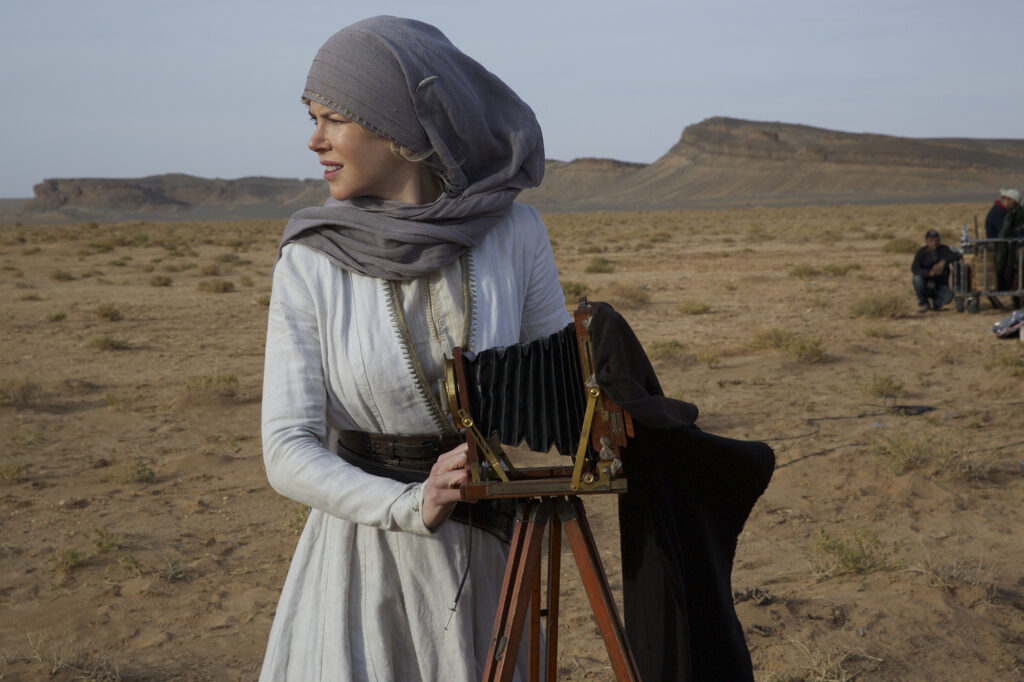
Queen of the Desert (2015) isn’t Werner Herzog’s best film, but it certainly isn’t his worst either. The critical reception of this beautifully mounted Gertrude Bell biopic comes as a bit of a surprise. There seems to be a consensus that the pacing of the film is too slow, but I rather think that’s the point. In the film Bell (Nicole Kidman) refers to herself as a “poet” which is how Herzog appears to have approached this film. Queen of the Desert isn’t about action, bravura, or masculine posturing like Lawrence of Arabia (1962), to which it is often compared. What Herzog is interested in is the poetry inherent in his images; in sharing Bell’s sense of wonder and appreciation for the beauty of the natural world with the audience. In this respect Gertrude Bell and Werner Herzog are remarkably similar.
Throughout Queen of the Desert English men constantly ask Bell “Why go into the desert?”, or something close to that, to which she replies “To see what is there”. As I pointed out above, this is Herzog’s point, but now he has attached a linear narrative to an exercise that began with Fata Morgana (1971) and reached its formal zenith with Lessons of Darkness (1992). Though Herzog retains many of the formal Romantic qualities one associates with biographical films, their execution never hinders this desire to “see what is there” that he shares with his subject.
If Herzog’s version of Gertrude Bell is about seeing poetry, then her lover interests (James Franco and later Damian Lewis) are primarily concerned with the poetry of emotions. Both men share an almost Arthurian passion for Bell and make equally mythological gestures. The Robert Pattinson version of T.E. Lawrence represents not the poetry of the image or of feeling, but of action. Though Lawrence barely appears in Herzog’s film he manages to retain the infamy bestowed upon him by David Lean and Peter O’Toole through gestures that signify all of the spectacles and scope of Lawrence of Arabia. So though Lawrence may not be active in Herzog’s narrative, he still manages to represent the most masculine forms of action; the poetry of epics and legends.
I can’t help but think of Robert Kolker’s description of Herzog whenever I see one of his films; Kolker calls Herzog “the holy fool” of New German Cinema. These words are always apt. There is something naive in how Herzog sees and then records what he has seen. To forget this defining trait of Herzog’s cinema is to miss the point to any of his films, Queen of the Desert or otherwise. This is a film about poetry disguised as a biopic, and content to be a Romantic travelogue.
